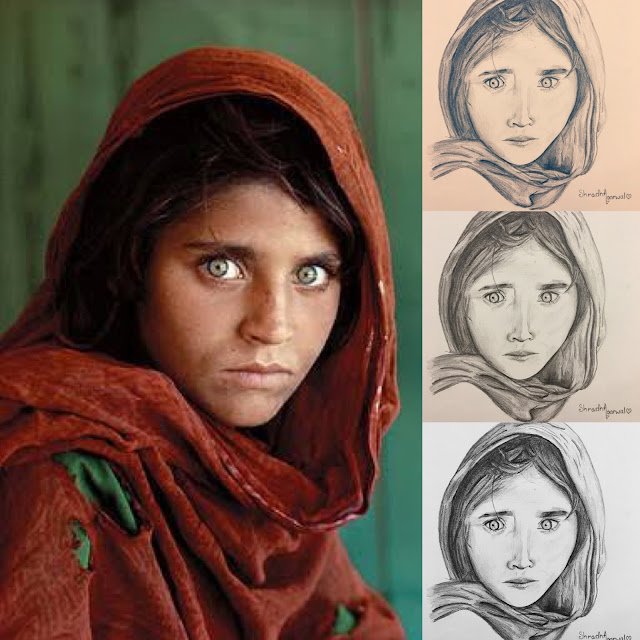Elements of Design: Learn the basics of Visual Arts
Hello! This post is dedicated to increase the understanding about the ‘Elements of Design’.
So, you might be wondering, what exactly these ‘Elements of Design’ are, and why actually we need them? But don’t worry, I’ll answer all these questions today!
What are ‘Elements of Design’?
‘Elements of Design’ or ‘EoD’ are the basic design elements that combine, in some way or other, to create a design or a final art work.
There are a number of permutations and combinations in which an artist/ designer can use these EoD in her work.
Sometimes, a single element is used to create the whole master-piece.
These elements of designs are all around us; ignored, craving for our attention (lol :p); but the thing is, only after knowing/ reading about them, we start observing them! EVERYTHING is composed of the EoD.
There are seven elements of design:
1. Color
2. Line
3. Shape
4. Texture
5. Form
6. Value
7. Shape
- Color:
- Primary colors: Red, Yellow, Blue.
- Secondary colors: Green, Orange, Violet.
- Tertiary Colors: Primary Colors+ Secondary Colors
- Hue: Any color is a hue. ‘Hue’ is a synonym of ‘color’.
- Shade: Black color + Hue.
- Tint: White color + Hue.
- Tone: Both black & white/ grey + Hue.
2. Form:
It has volume, or if it is solid, it has mass. Form is something that looks 3-D or is actually 3-D.
3. Shapes:
Shapes are 2-D. They are flats, enclosed area of an artwork created through lines, etc.
There are two different types of shapes: organic shapes (also called biomorphic shapes) and geometric shapes.
4. Space:
Positive and negative space are two types of spaces, of equal importance’ used in visual arts.
Positive space is the space enclosed by our subject in the composition; whereas; negative space is the space is the space surrounding our object. Negative space is important because it helps to define the boundaries of the positive space, and thus brings balance.
5. Value:
Value or gradation is the color scale from pure white to absolute black.
6.Texture:
There are two types of textures: Visual texture and tactile texture.
- Visual texture: This type of texture can be observed by our eyes, but cannot be felt upon touching.
- Tactile (or Actual) texture: This type of texture can be felt upon touch.
 |
| Natural Visual Texture |
 |
| Natural Visual Texture (rubbing) |
 |
| Man-Made Visual Texture (rubbing) |
7. Line:
This is the most important element. There are MANY different types of lines, that can be used, either individually, or in combination, to create interesting art works.
 |
| Some different types of Lines |
Today's post was about the 'Elements of Design', but we'll discuss the 'Principles of Design', maybe in the next post. Till then, stay connected! :)
Hope you creative design guys like it! You may please feel free to leave your queries (if any) in comments below and also suggest your intelligent suggestions :)
Follow the blog on all social sites: Facebook, Twitter and Instagram- @ilovesketchart to get latest updates!


Comments
Post a Comment